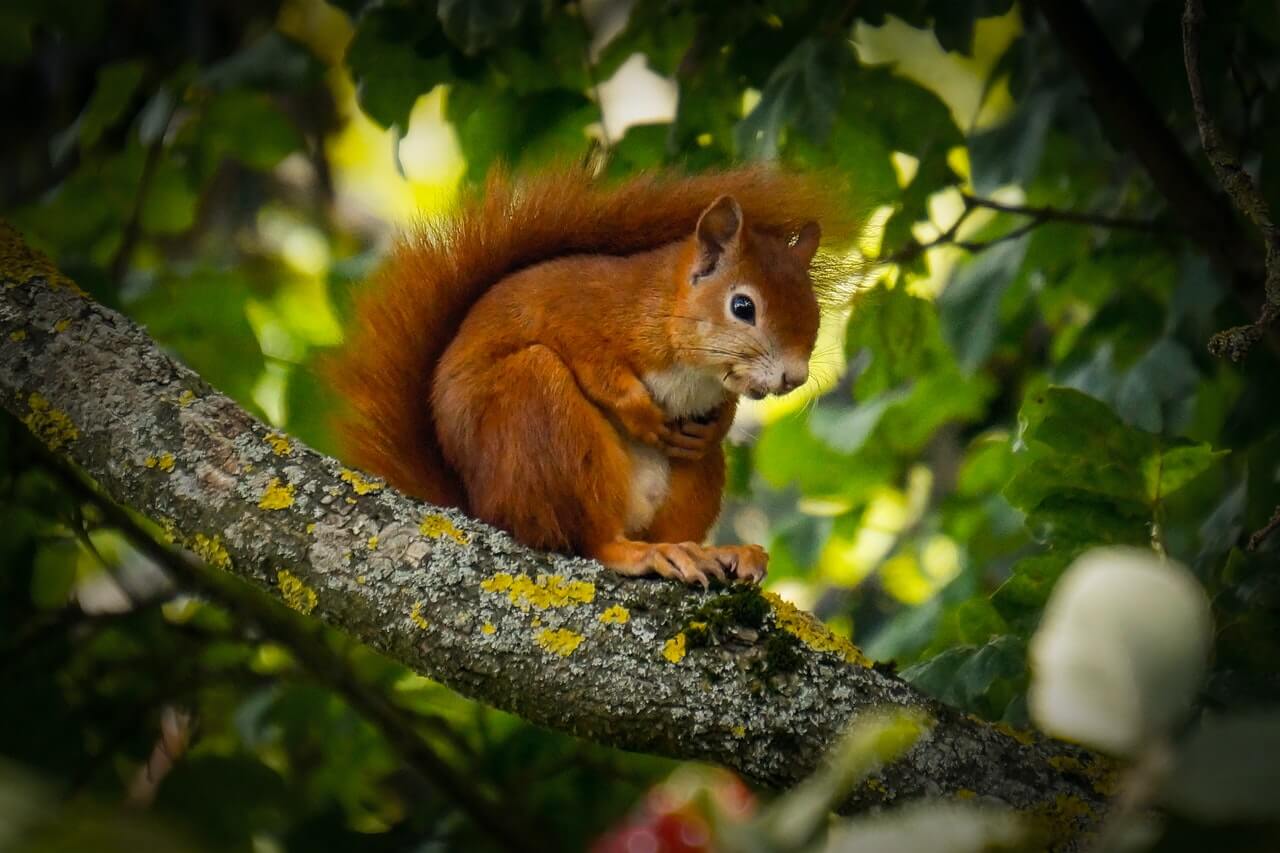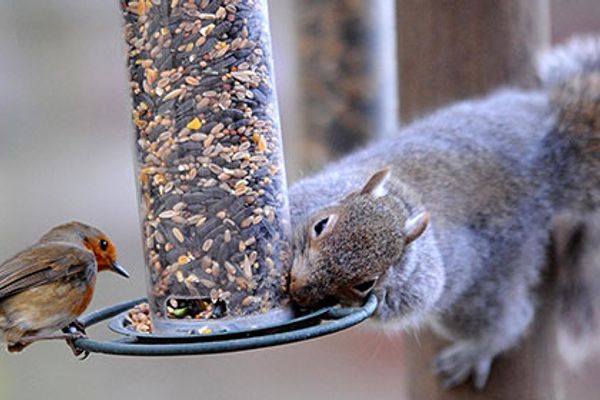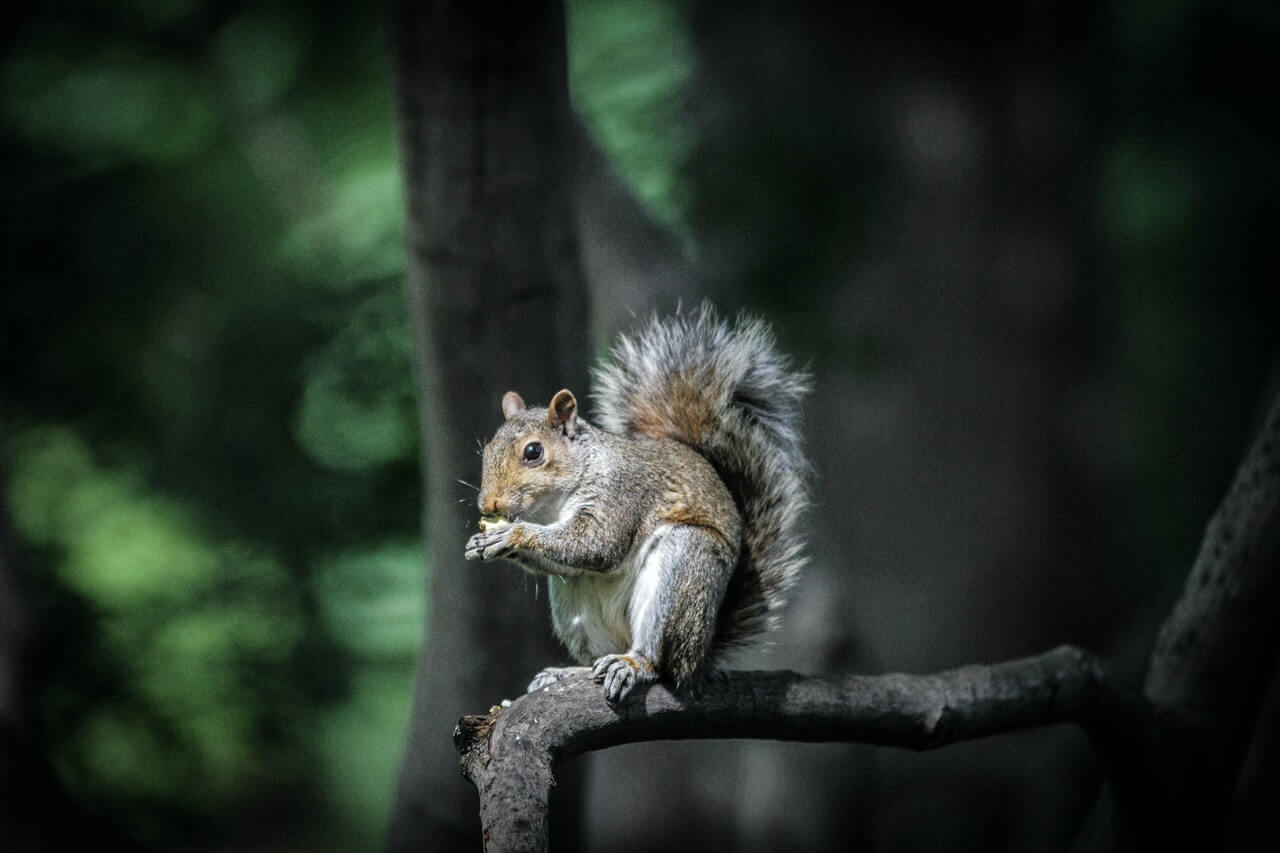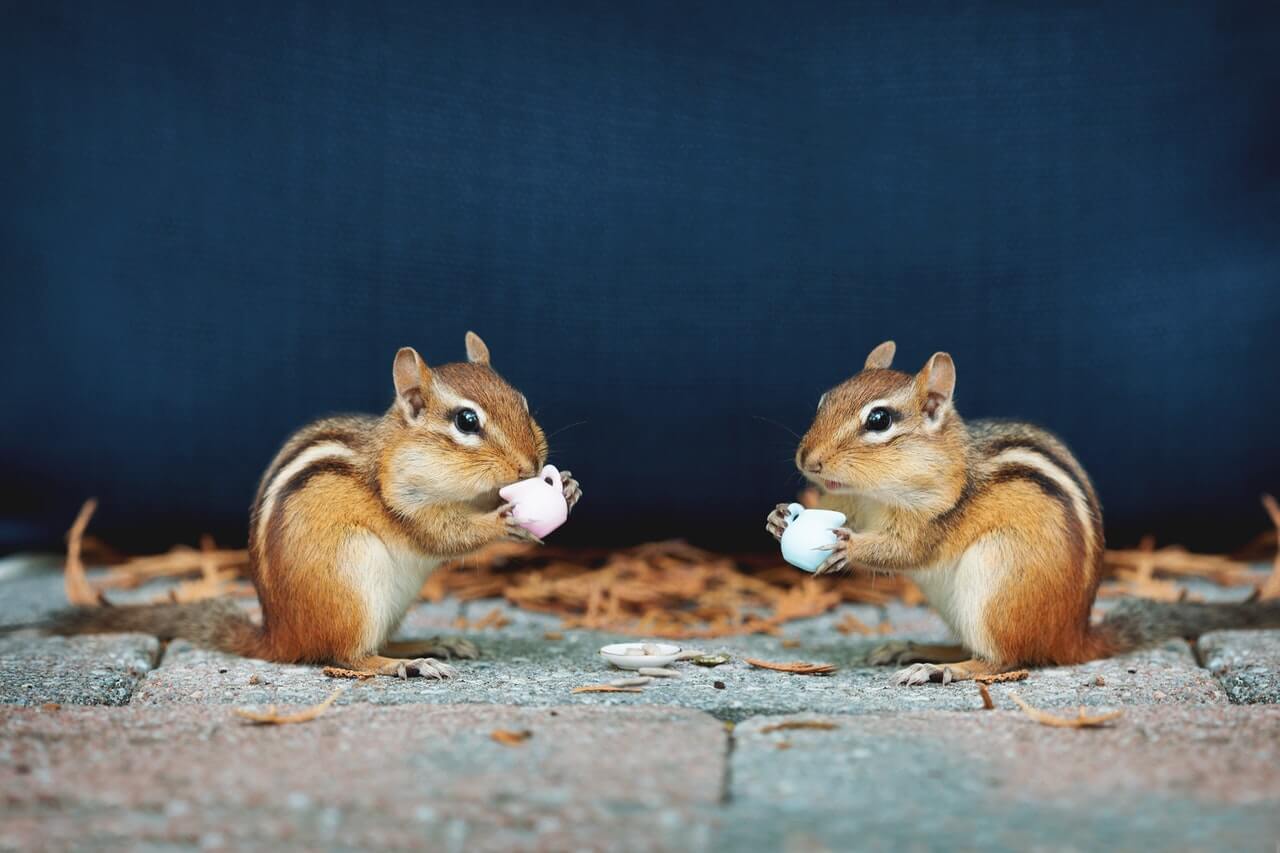QUICK SUMMARY ↬ Getting rid of squirrels means getting rid of the reasons why they come in the first place. In this brief guide, we’ll show you how to get rid of squirrels invading your area.
Not only can squirrels wreak havoc around your home and garden, but they can potentially carry the same diseases as other rodents like rats and mice. Whether these pesky squirrels have invaded your house, attic, or backyard, we got you covered.
Don’t feed them
Cute as they may be, feeding squirrels create an open invitation for them to come into your backyard. Know that the best way to repel squirrels is not applying something they hate but not giving them something they love.
Discourage squirrels from approaching your yard by setting up a buffet for these small animals in a remote area away from your backyard or garden. If you have an extra room, you could also try to attract squirrels in a separate garden where these critters are free to munch as they please. This will prevent them from damaging your main crops.
RELATED: 6 METHODS TO KEEP SQUIRRELS OUT OF BIRD FEEDERS
Remove what attracts them
Squirrels eat just about anything. But their main diet is composed of plants and nuts. So, it’s very hard to get rid of them if you have fallen fruits, nuts, and seeds in your area. So if you see tree squirrels and ground squirrels to be more interested in your area than in your neighbor’s, you need to investigate why.
Scan your property for food sources like bird feeders. They are squirrel magnets. Tree squirrels can easily climb up and take all the food that’s in there.
RELATED: DO SQUIRRELS EAT BIRD EGGS? WHAT ABOUT BABY BIRDS?
If you love the sights and sounds of spring birds, make sure to invest in a squirrel-proof bird feeder or bird feeder with a baffle—a hood that prevents squirrels from accessing the food.
It also helps to rake your yard regularly. Not only this will keep your lawn tidy and looks nice, but this will also remove fallen nuts, berries, and other food that ground squirrels may find snack-worthy. It may cut down on garden thievery, too.
Last but not the least, use garbage cans with tight-fitting lids to keep squirrels out of your trash. Seal or cover them at night.
If you want to go extreme, you can also cut down your trees and avoid planting them. Only do this if you’re really, really tired of squirrels.
Scare them
Get a dog or a cat as they may keep squirrels out of your area, especially if your dog chases them. This may scare squirrels off and a scared squirrel is as good as gone. Once these bushy-tailed animals learn to associate your home with danger, you’re almost certain that they’ll steer clear of your home.
If you don’t have a dog or a cat, you can put realistic and life-size owl figures on elevated areas of your house like roofs and fences.
You can also buy containers of squirrel predator urine (wolf or tiger) to spray in your yard or garden. The scent scares many animals, including squirrels, deer, and rabbits. Bear in mind that such treatments must be reapplied after every rainfall.
RELATED: HOW TO KILL SQUIRRELS: 3 BEST WAYS
Use spray or squirrel repellents
If you want to get rid of squirrels fast, use the tried and tested natural squirrel repellents. The best squirrel repellents always use food-grade products.
Squirrels don’t like spicy or hot food. Anything that tastes and smells spicy or minty will make squirrels run away. Mixing a bottle of tabasco into a gallon of water is a cheap and easy DIY natural squirrel deterrent.
To use this squirrel repellent for the garden, add a couple of drops of dishwashing liquid to help make it stay on the surface of leaves longer.
If you want to protect your trees, you can add a raw egg to the tabasco-water mixture. This makes it more viscous and sticky, perfect for applying on tree bark. The residue will adhere to the squirrel’s paws, making them let go of the tree quickly.
You can also use the same principle by sprinkling cayenne pepper powder, pepper flakes, or a garlic powder-pepper combination on surfaces and plants.
You can also install a motion-activated sprinkler system. This will just simply scare squirrels away and doesn’t inflict pain or cause any harm. Best of all, it can detect everything from squirrels to deer, eliminating the need for chemical intervention or adding physical barriers like fences.
Use netting or fencing
Prevent squirrels from evading your area by blocking their possible entry points. Put fences or netting around your plants. Not just any fence, but a squirrel-proof fence.
Build a fence out of one-inch mesh chicken wire. The fence should be at least 30 inches high and extend six inches below ground, with an additional six inches underground bent outward at a 90-degree angle to deter squirrels from burrowing.
Also make sure the holes in the mesh are small, preferably around 1 inch wide, to make sure they don’t squeeze through. An electric fence is a further deterrent.
If squirrels are coming between you and your crops, netting will help curb their snacking activity. Just cut small pieces of netting and wrap them around your ripening fruits.
If you have the budget, build a greenhouse. It might be a worthwhile endeavor. Grow edible plants like strawberries locked away in the greenhouse where squirrels can’t get to them.
Plant flowers squirrels hate
Squirrels’ diet consists of berries, seeds, and nuts. But there are such things as squirrel deterrent plants.
Squirrels hate daffodils, mint, fritillaries, geraniums, hyacinth, Galanthus, and lily-of-the-valley. Use any of them as natural squirrel repellents.
Daffodils
Daffodils are particularly dangerous because of the toxin content that makes them inedible when ingested.
Mint
The smell of mint may be pleasant to us humans, squirrels dislike it. Plant mint at the edge of your garden. Squirrels avoid the smell of peppermint plants.
Onion and garlic
The taste and smell of onion, garlic, leeks, and scallions also repel squirrels. Use this to your advantage to deter squirrels and protect your vegetables and flowers in your backyard.
Trap and relocate
Squirrel traps may look violent to others but when used correctly, they can be effective in repelling squirrels without hurting them.
RELATED: HOW TO TRAP SQUIRRELS
Put their favorite food—like nuts or sunflower seeds—when baiting the squirrel trap and expect results within few days. Once trapped, act quickly to relocate them to a suitable location at least three miles, preferably across a major highway or large body of water.
Note: use non-toxic control methods for your squirrel trap. In many states, squirrels are considered a game species and are protected by law. Trapping squirrels may be illegal, so check with your state’s Department of Fish and Wildlife.
In California, for example, it’s illegal to trap a gray squirrel without a permit.
RELATED: SHOOTING SQUIRRELS IN THE BACKYARD? CHECK IF IT’S LEGAL
Ask for professional help
Other methods like seeking a professional pest control company are always an option. This may be, in fact, the best bet you can consider when dealing with pesky squirrels.
Although getting rid of squirrels is pretty easy (most of them enter houses by mistake and will try to leave on their own), things might start to get out of hand, especially if you haven’t been around the house for a while. Backyard or garden infestations are common and they can be pretty persistent and tough.
One thing you should keep in mind is that you should never go in a face-to-face fight or chase the squirrel. Though rare, squirrel bites can still transmit some serious infections, such as rabies, Rocky Mountain spotted fever, encephalitis, leptospirosis, and tularemia. They are just like other pests.
If you suspect that you’re dealing with more than one squirrel and see signs of squirrel infestation in your home or yard, it’s time to call a professional.
Final thoughts
If you’re having problems with squirrels in your yard or garden, it could be a symptom of a larger problem: squirrels in your home.
Walk around the exterior of your house looking for possible damage or breaches in the eaves, exterior walls, or roof. Holes could serve as a squirrel’s point of entry and exit as they fetch food from your yard and take it back to their nest.
Be sure to promptly patch or repair any openings to give squirrels one less option for entering.
Assess the squirrel activity in your yard or garden to determine the best way to get rid of squirrels. Look for signs of squirrel damage: golf-ball-size or smaller holes in your plant beds, bite marks on fruit, missing plants or tree bark, and container digging. Then follow the appropriate steps above to keep squirrels out of your yard or get rid of them after they arrive.
Remember, a squirrel infestation can lead to severe damage that extends beyond that in your yard or garden. Prevent squirrels in your home by controlling the squirrels outside your home.



